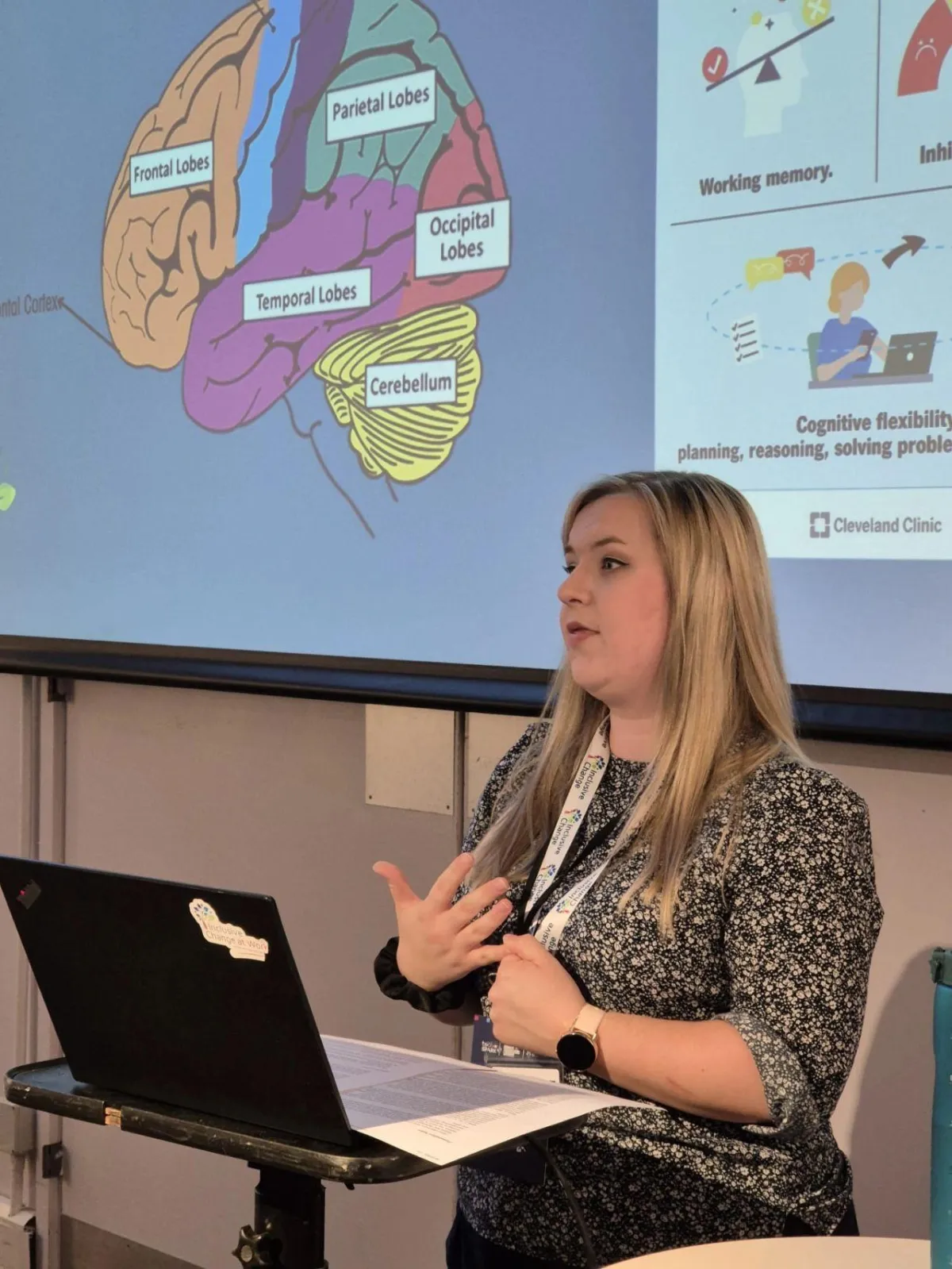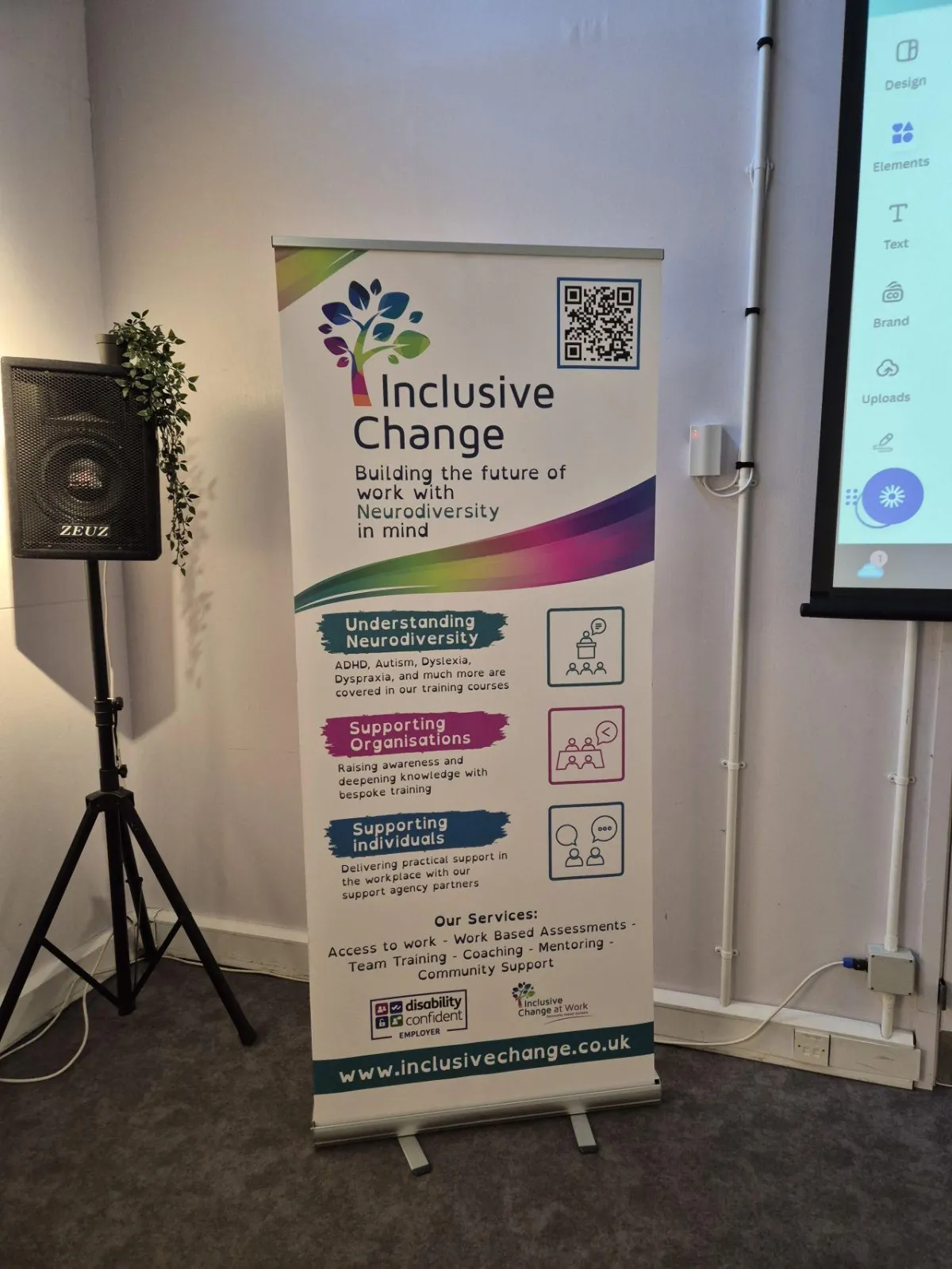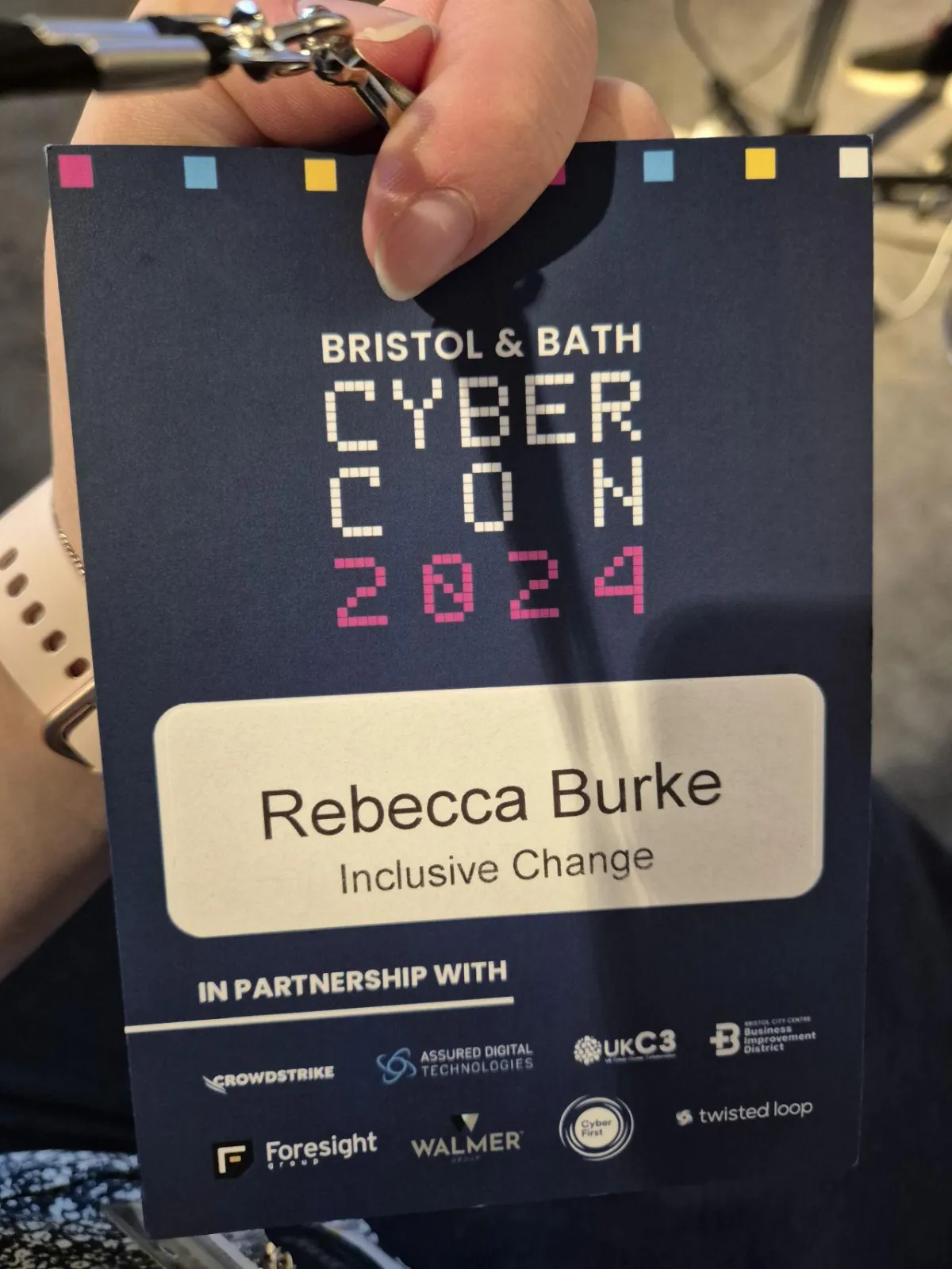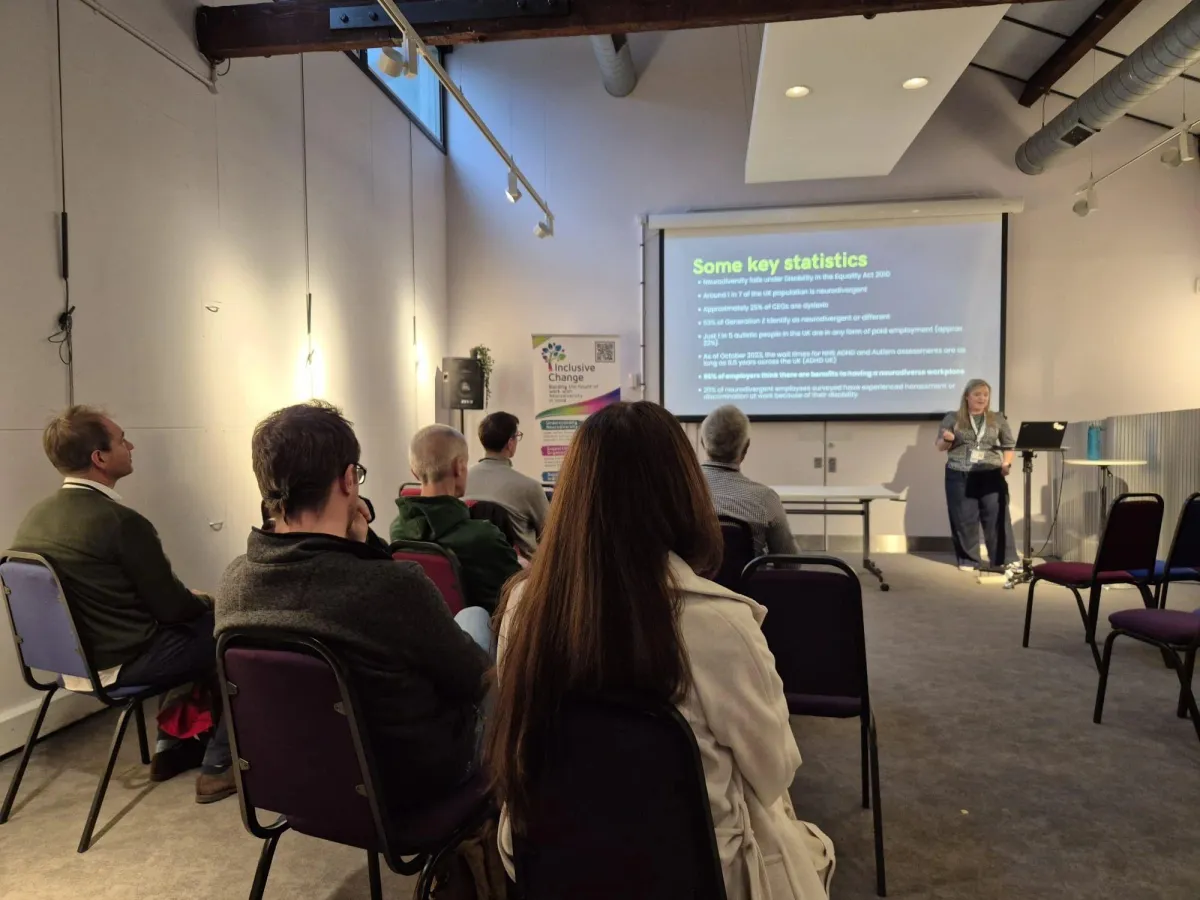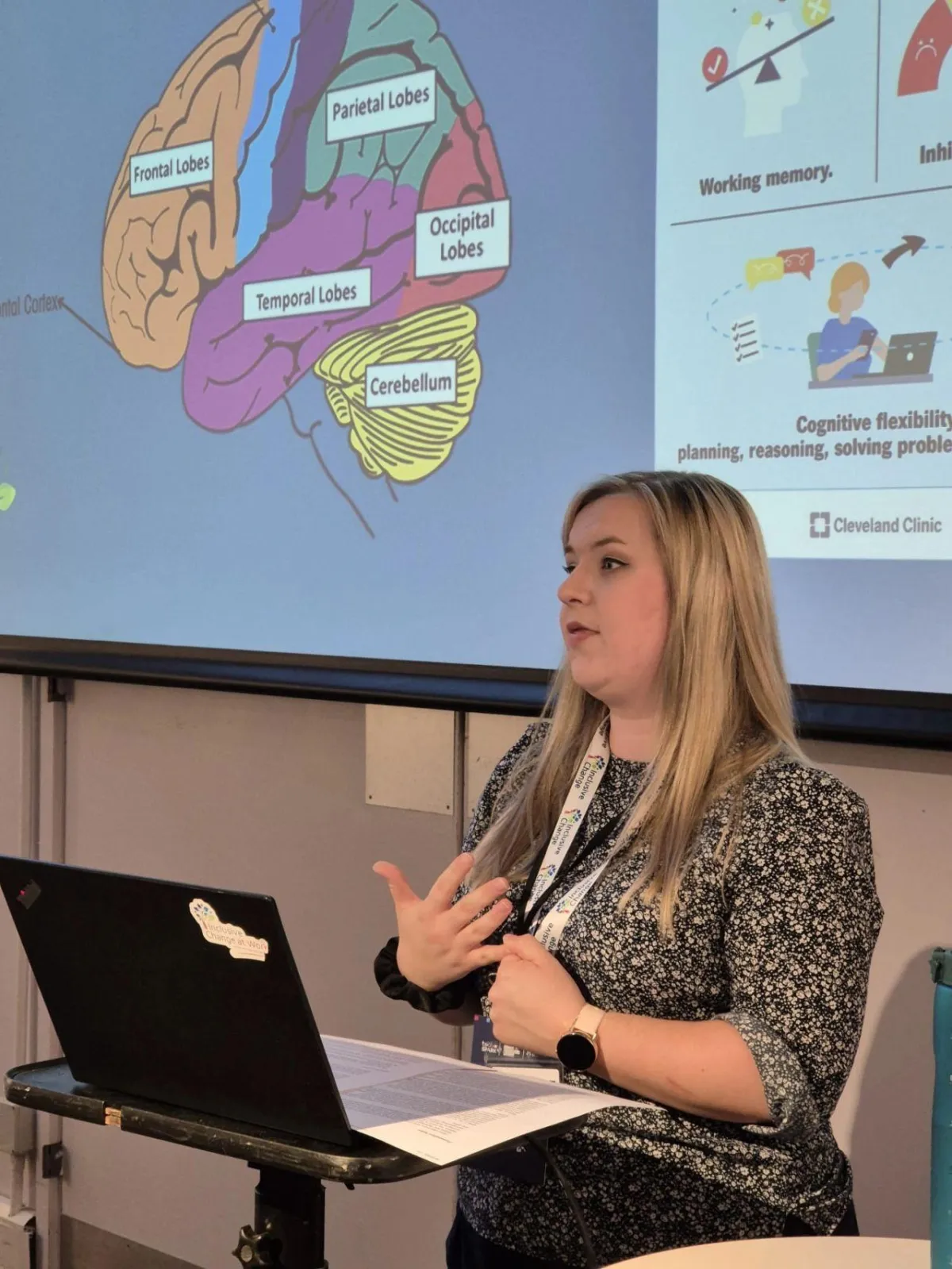
Becca Burke
Speaker
Empowering Neurodiversity in the workplace
Hi, I am Becca!
I'm Becca, a passionate advocate for neurodiversity and understanding ADHD in the workplace. Living with ADHD (combined presentation) myself, I bring a unique blend of professional experiences and personal insights to the conversation about creating inclusive, productive work environments. Equity in the workplace is especially important for us as neurodiverse folk; if given the adjustments and support we need, we can not only survive, but thrive at work.
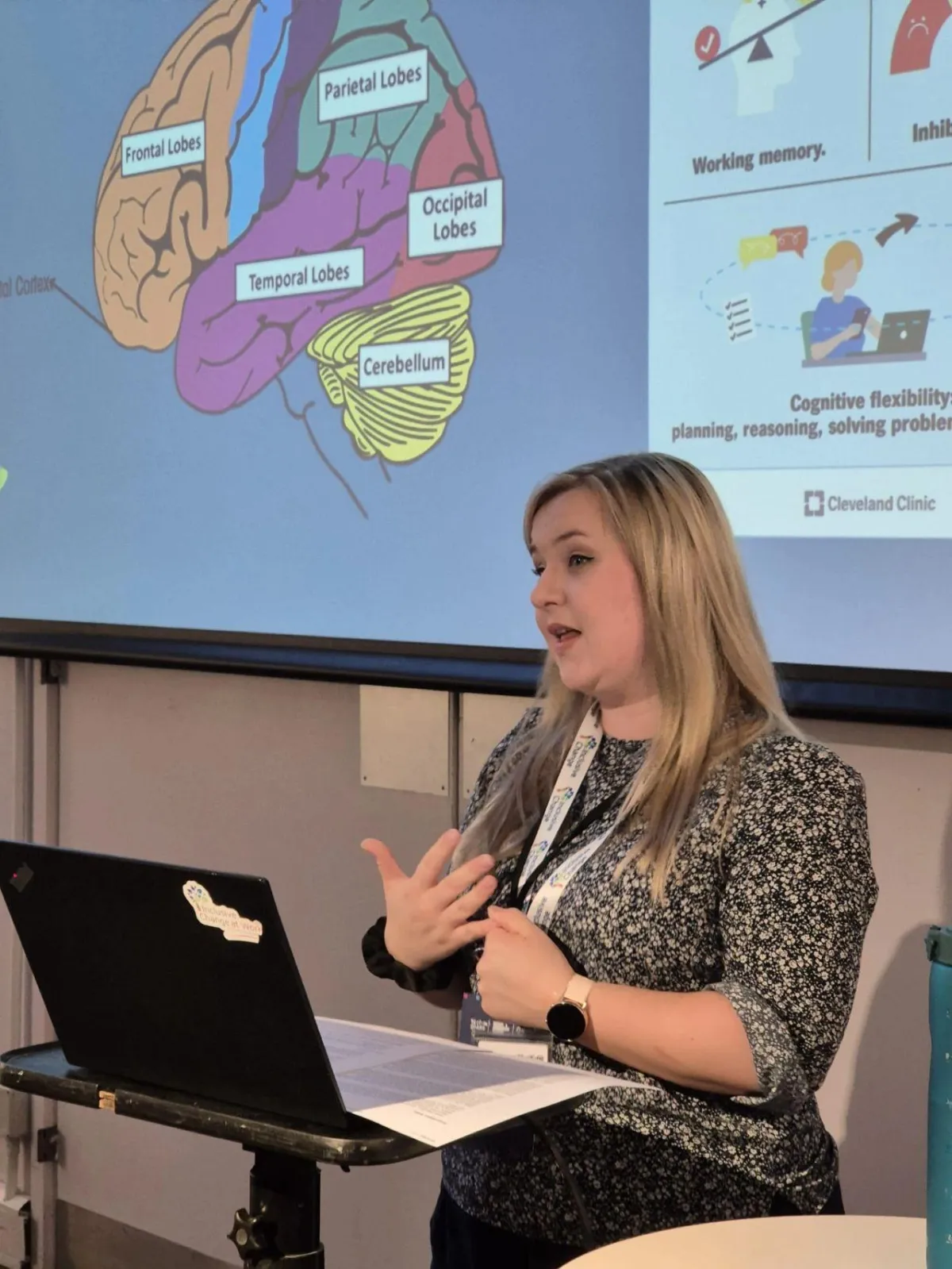
My professional journey
My career path has been varied, in true ADHD style! From my early days in customer relations to roles in sales and account management, I've always excelled in building relationships and understanding people's needs. My time at a FTSE 100 bank gave me a solid foundation for navigating large organisations and the politics of the office environment, and I then had to adapt quickly to the drastic changes of the Covid-19 Pandemic Lockdown. It was during this time, recognising the disruption to my routine, hyperfocusing on work outside of my core hours, and my inability to finish any tasks to completion, that I realised something wasn’t working for my brain.
Throughout my career, I’ve recognised that I was struggling, but never quite understood why. I saw so much of my own journey in the struggles I heard from other neurodiverse people, and I wanted to find a way that I could tangibly make a difference. After my own diagnosis in early 2024, I was inspired to become an ADHD Coach with Leanne Maskell's ADHD Works, and led to me being headhunted for Inclusive Change Ltd as Support Specialist.
My Areas of Expertise
- ADHD awareness and management strategies
- Education and training around ADHD for businesses
- Job coaching neurodivergent clients at work
- Rejection Sensitive Dysphoria awareness/training
- Business process improvement for neurodiverse workforce support
- Working with clients as a neurodiversity educated Virtual Assistant
- Neurodivergent talent recruitment and retention
- ADHD Works Level 1 Coach
Popular Discussion Topics
- Rejection Sensitive Dysphoria (RSD) & ADHD
- ADHD and the menopause
- ADHD screening in prisons
- ADHD and neurodiversity co-occuring traits
- ADHD celebrities
- Current research development
Living with ADHD
- Physiological difference in the brain
- ADHD facts and figures
- Common misconceptions
- Lived experience
- Interactive Q&A
ADHD in the Workplace
- Common challenges and strategies
- Strengths ADHDers bring to the workplace
- Challenges for us in the workplace
- Helpful strategies
- Reasonable Adjustments
- Equality Act 2010 protection
My Speaking Style
I pride myself on being engaging, insightful, and empathetic. My presentations blend personal anecdotes, research-based strategies, and interactive elements that leave audiences both informed and inspired. I like making complex topics accessible, and providing concrete, implementable solutions to common workplace challenges.
Why Choose Me?
At Inclusive Change, we understand your ‘Why,’ and meet you where you are on your journey as a business. Whether you're looking to educate your HR or leadership teams, or provide valuable insights to your entire organisation, I can help. I don’t believe that we as neurodivergent people need to change who we are to succeed; with the right support, education and awareness, we can be ourselves without compromise.
Work with me
Ready to transform your understanding of ADHD in the workplace?
Would you like me to run a workshop for you?
Get in touch using my calendar below.
Read my blog here: https://inclusivechange.co.uk/blog/b/adhd-and-me
Read more
The blog
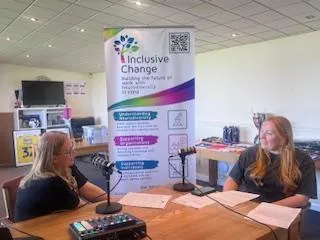
Inclusion in Action: How North Somerset Sports Foundation Is Changing the Game
Continuing the Conversation on Neurodiversity and Football with Lucy Chappell
What happens when we stop expecting young people to fit into rigid systems and instead build environments around how they truly thrive?
That’s the driving question behind this Project Sandbox podcast episode, where Lucy from Inclusive Change sits down with Lucy Chappell, founder of the North Somerset Sports Foundation, to explore neurodiversity, inclusion, and how grassroots football can become a force for real social impact.
A New Kind of Sports Foundation
The North Somerset Sports Foundation isn’t just about playing matches, it’s about wellbeing, community, and creating space where everyone feels safe. Since taking over a sports site in Clevedon, Lucy Chappell and her team have been working to build what she describes as a "sports and wellness village." It's a place where children and families of all backgrounds and abilities are welcomed, supported, and empowered to thrive.
This ambitious project runs alongside Lucy’s role as Welfare Officer at North Somerset Football Club, something that highlights just how personally committed she is to making inclusive sport a reality.
“We’re building a thriving community united by fitness, wellness, and sports where every individual, regardless of age, background, or ability, has the opportunity to grow, connect and excel.”
The Overlap of Mental Health and Neurodiversity
What began with a focus on mental health soon became a much broader conversation. As Lucy began working more closely with families and coaches, she noticed a recurring theme: children experiencing anxiety or behavioural challenges were often later diagnosed as neurodivergent.
Recognising this pattern led to a deeper understanding of how football clubs, often one of the few consistent spaces in a child’s life, can be part of early identification and support.
“So many families experience blame before they get any support. If we start conversations earlier, we can change lives.”
Lucy also shared her personal journey as a parent, and the difficult but essential decision to remove her son from mainstream schooling to protect his wellbeing. These experiences fuel her drive to make football more inclusive, understanding, and responsive.
Changing Perceptions, Unlocking Strengths
The conversation highlighted how vital it is to reframe what we view as "behavioural problems" or "learning differences." These can often be signs of unmet needs or different processing styles.
In one powerful story, Lucy describes how her son appeared disengaged during training, wandering at the edge of the group, until the coach asked him to repeat what had been said. He recalled every instruction word-for-word. He wasn’t distracted, he was just processing differently.
“It’s not about changing the child. It’s about changing the environment around them.”
The podcast challenges us to stop asking how children will fit into sport, and instead ask how sport can flex to meet them where they are.
Practical Steps for Inclusion
The discussion offers a range of actionable strategies for clubs, coaches, and parents, including:
Simplifying instructions and breaking them down into small steps
Using visual aids and demonstrations during training
Building structure and communicating changes in advance
Normalising differences through open conversation
Incorporating ‘brain breaks’ for everyone in a session
Providing praise regularly and meaningfully
Developing flexible expectations not lowering them, but adjusting them
The key is to create an environment that supports every player without singling anyone out. These changes are beneficial for all, not just neurodivergent players.
Looking Ahead
Lucy envisions a future where neurodiversity training is a standard part of coach development, where football clubs create player support plans just like schools do, and where children feel safe and celebrated in sport from an early age.
“If we build these environments early, we may prevent the kinds of struggles that lead to isolation or mental health crises later. It starts with asking better questions, and listening closely to what young people need.”
The workshop North Somerset Football Club shared with coaches, volunteers and parents, in partnership with Inclusive Change has already been picked up by Somerset FA and Gloucestershire FA, helping to shift coach education at a broader level. It’s a promising sign that the seeds of inclusive change are taking root.
Listen to the Episode
This conversation is about more than football. It’s about redesigning systems to serve every kind of mind and building communities where everyone belongs.
Listen to the full episode via the Inclusive Change podcast and learn more about how the North Somerset Sports Foundation is creating meaningful impact through sport.
To get involved or explore digital inclusion through Project Sandbox, visit icall-cic.com/sandbox.
Some of the Companies Inclusive Change Have Worked With So Far


Column Header
Lorem ipsum dolor sit amet consecetuer lorem ipsum
Organically grow the holistic world view of disruptive innovation
At the end of the day, going forward, a new normal that has evolved
Column Header
Lorem ipsum dolor sit amet consecetuer lorem ipsum
Organically grow the holistic world view of disruptive innovation
At the end of the day, going forward, a new normal that has evolved
Column Header
Lorem ipsum dolor sit amet consecetuer lorem ipsum
Organically grow the holistic world view of disruptive innovation
At the end of the day, going forward, a new normal that has evolved
Inclusive Change Ltd
The Brightwell, Bradbury House
Wheatfield Drive
Bradley Stoke, Bristol
BS329DB
Copyright 2025 - Inclusive Change Ltd
Companies House: 12412464
VAT NO: 352 1564 17
ICO Reg: ZB081779
UK Register of Learning Providers: 10090652

